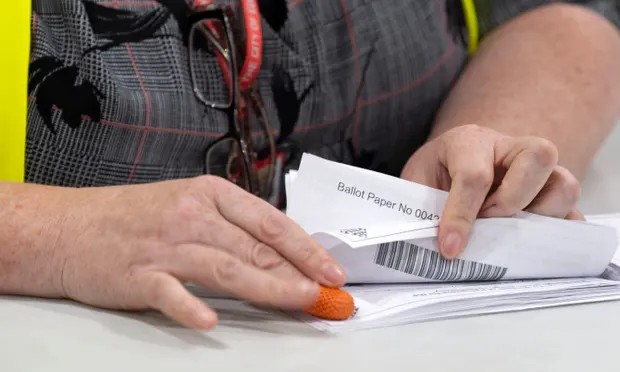A Conservative-run council has been accused of potential voter supression by asking people to show photo ID if they want a postal or proxy vote, even though it is not required by law.
Woking borough council in Surrey says that because voters are only “requested” to provide ID and proof of address, it is not breaching electoral rules.
But rights groups say the tactic could discourage groups of voters who are less likely to have the relevant documents, including older people, people who are #homeless, those with #disabilities, or people from #black, #Asian and #minority #ethnic communities.
They say this is particularly vital in the 6 May election as many more people are expected to seek postal or proxy votes because of coronavirus, particularly older voters.
The government plans to introduce mandatory ID for all in-person voting from 2023, a plan criticised separately as likely to suppress voter numbers from some communities.
In England, Scotland and Wales, for a postal or proxy vote, people only need to provide a signature and date of birth in advance, which is then checked against the same data on the vote itself.
But on its website, Woking council says that to apply for a postal or proxy vote, “you are requested to provide” copies of photo ID such as a passport or driving licence, and proof of residence, for example a utility bill or bank statement.
This page does not tell people that this is not mandatory.
If voters then click on the link to apply for a postal or proxy vote, they are told, the subsequent document says: “If you do not provide such evidence, your application will still be processed, but your registration at the property will be examined further. This could result in your name being removed from the electoral register.”
Toby James, a professor of politics at the University of East Anglia and an expert on voting practices, said he had never previously seen an English council act in this way.

Comments
No comments yet. Be the first to react!